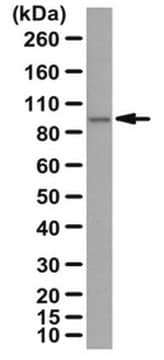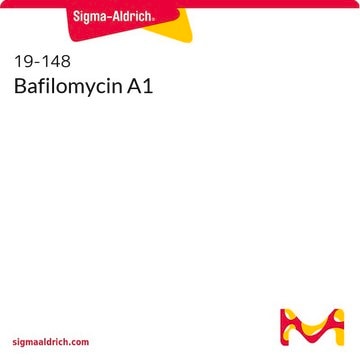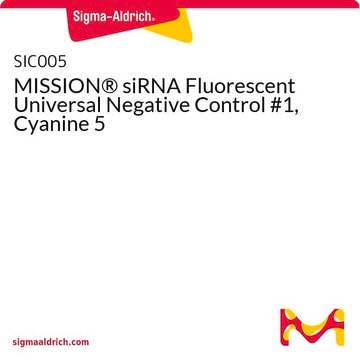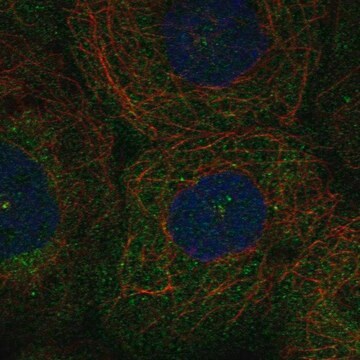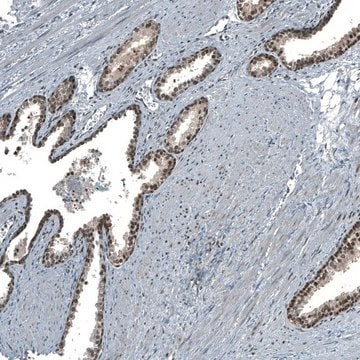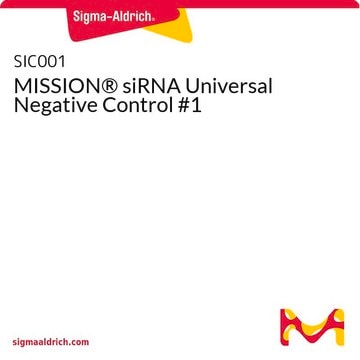MABC544
Anti-PLK-4 Antibody, clone 6H5
clone 6H5, from mouse
Synonim(y):
Serine/threonine-protein kinase PLK4, Polo-like kinase 4, PLK-4, Serine/threonine-protein kinase 18, Serine/threonine-protein kinase Sak
Wybierz wielkość
Wybierz wielkość
About This Item
Polecane produkty
pochodzenie biologiczne
mouse
Poziom jakości
forma przeciwciała
purified immunoglobulin
rodzaj przeciwciała
primary antibodies
klon
6H5, monoclonal
reaktywność gatunkowa
human
metody
immunocytochemistry: suitable
immunoprecipitation (IP): suitable
western blot: suitable
izotyp
IgG3κ
numer dostępu NCBI
numer dostępu UniProt
Warunki transportu
wet ice
docelowa modyfikacja potranslacyjna
unmodified
informacje o genach
human ... PLK4(10733)
Opis ogólny
Immunogen
Zastosowanie
Immunoprecipitation Analysis: A representative lot immunoprecipitated PLK-4 in HeLa cell lysates cotransfected with Flag-tagged Gcp6 and Myc-tagged Plk-4 (Bahtz, R. et al. (2012). J Cell Sci. 125 (Pt 2): 486-496).
Apoptosis & Cancer
Apoptosis - Additional
Jakość
Western Blotting Analysis: 4.0 µg/mL of this antibody detected PLK-4 in 10 µg of U2Os cell lysate.
Opis wartości docelowych
Postać fizyczna
Przechowywanie i stabilność
Komentarz do analizy
U2Os cell lysate
Inne uwagi
Oświadczenie o zrzeczeniu się odpowiedzialności
Nie możesz znaleźć właściwego produktu?
Wypróbuj nasz Narzędzie selektora produktów.
Kod klasy składowania
12 - Non Combustible Liquids
Klasa zagrożenia wodnego (WGK)
WGK 1
Temperatura zapłonu (°F)
Not applicable
Temperatura zapłonu (°C)
Not applicable
Certyfikaty analizy (CoA)
Poszukaj Certyfikaty analizy (CoA), wpisując numer partii/serii produktów. Numery serii i partii można znaleźć na etykiecie produktu po słowach „seria” lub „partia”.
Masz już ten produkt?
Dokumenty związane z niedawno zakupionymi produktami zostały zamieszczone w Bibliotece dokumentów.
Active Filters
Nasz zespół naukowców ma doświadczenie we wszystkich obszarach badań, w tym w naukach przyrodniczych, materiałoznawstwie, syntezie chemicznej, chromatografii, analityce i wielu innych dziedzinach.
Skontaktuj się z zespołem ds. pomocy technicznej